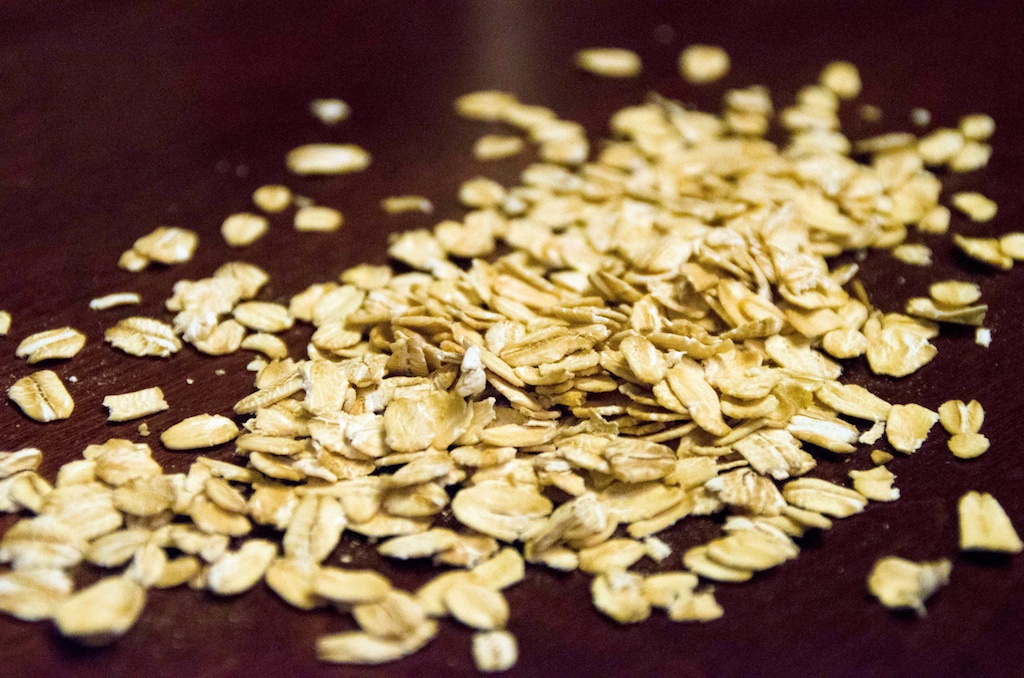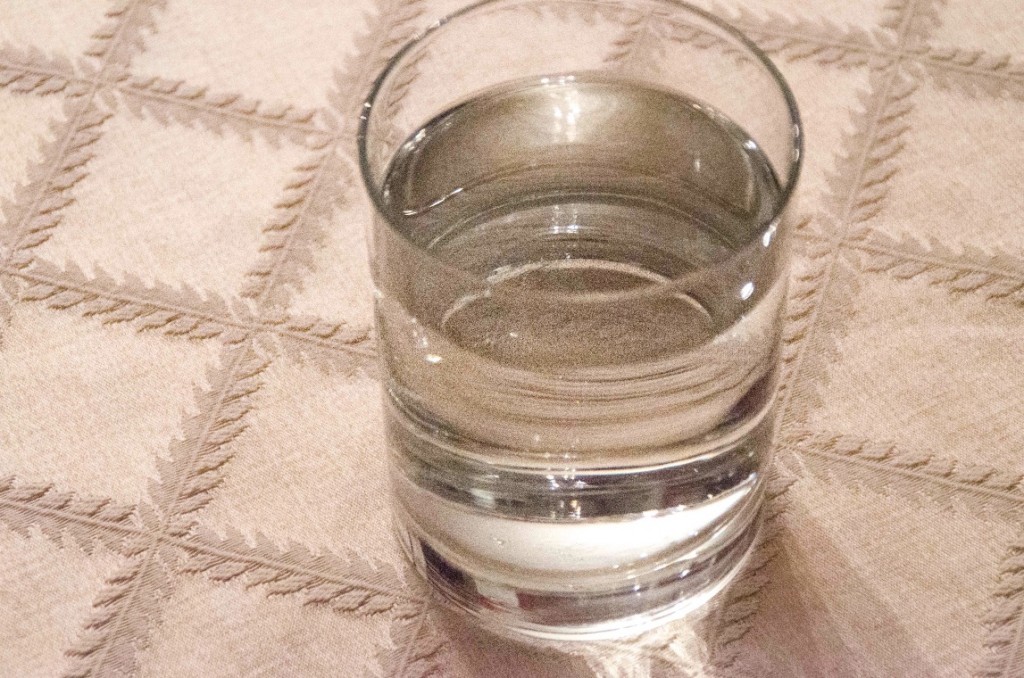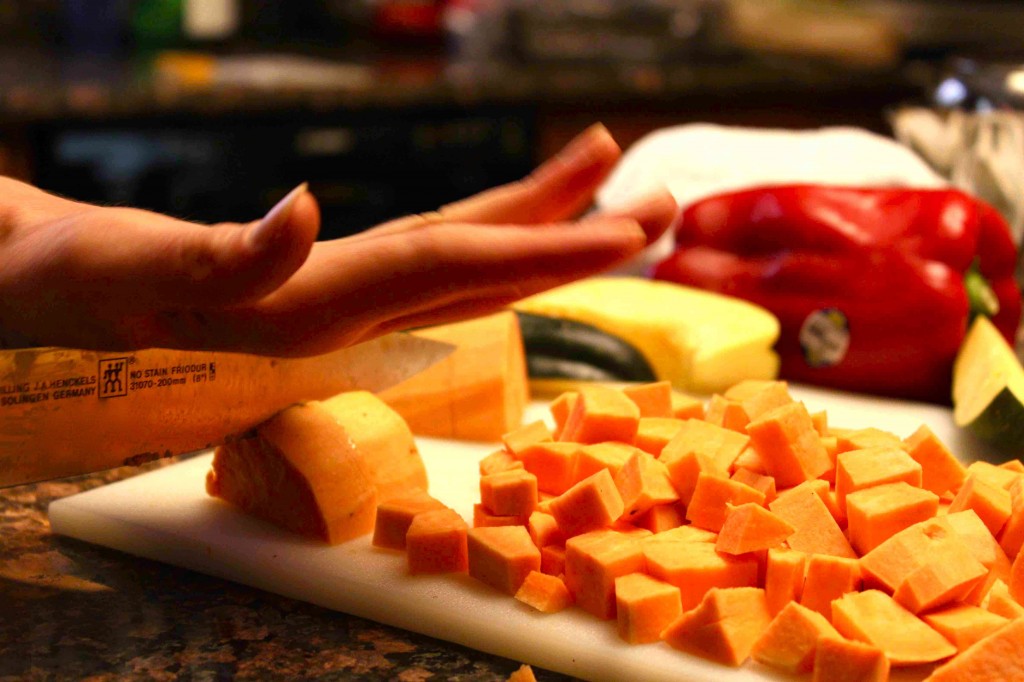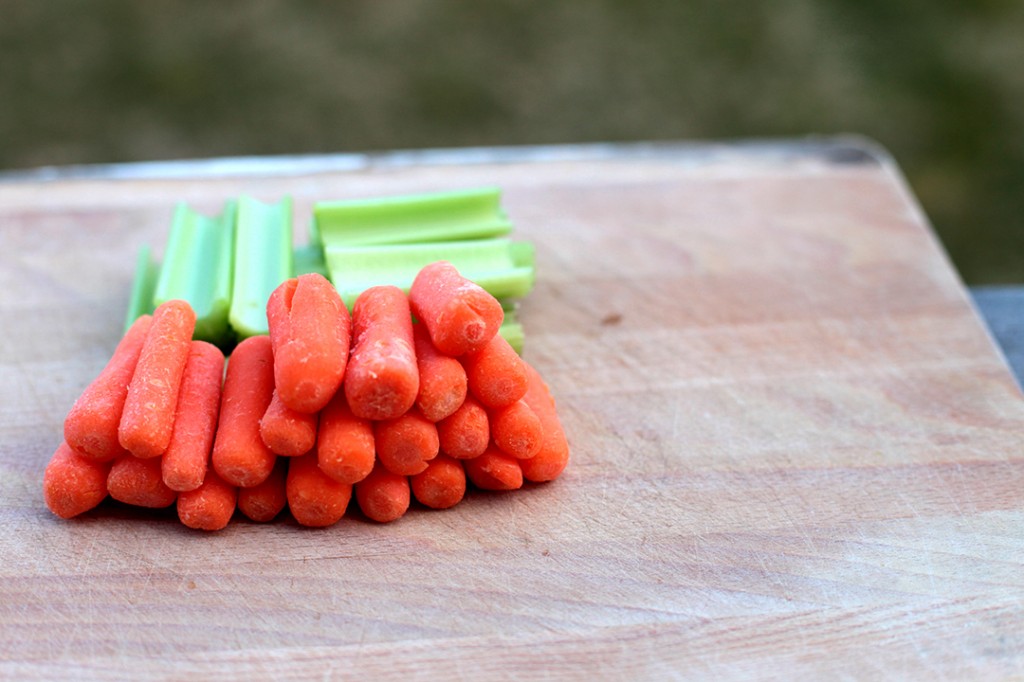Detoxes around this time of the year are not uncommon, probably due to the combination of enormous holiday feasts and new year’s resolutions. It’s a great way to kick start a year of healthy eating, but the key is not to let it be just a week-long venture. The best way to achieve a new year’s resolution of leading a healthier lifestyle is to treat it like a lifestyle and not a diet. Don’t get caught in gimmicky 3-day juice cleanses or month-long cabbage soup diets. Eat delicious food but keep an eye out for ways to maintain a healthy intake no matter where you are.
1. While juice cleanses might seem like a great way to shed weight, a lot of people have a tough time feeling full after a breakfast of just juice and wind up eating even more due to hunger. Instead of liquefying all your fresh fruits and feeling hungry by nine, make a batch of oatmeal and top it off with some banana slices to stay full until lunch.

Photo by Becky Hughes
2. Keep track of how much water you’re drinking and shoot for eight cups a day. It might seem tedious at first, but after a week or so, it’ll start to seem like second nature. Helping the body recognize that it’s dehydrated will allow the brain to associate the sense of dehydration with a need for water, instead of a need for junk food. Stuck in class all day? Carry a water bottle and drink from it constantly. Every time you see a water fountain on campus, refill it even if it isn’t empty.

Photo by Becky Hughes
3. Avoid the caffeine when running on an empty stomach. If you’ve ever downed an espresso around four in the afternoon, you might have gotten some pretty bad jitters and an even hollower feeling in the pit of your stomach. This is because caffeine will stimulate the production of hydrochloric acid in your empty stomach, which can lead to digestion problems later, often making you feel even hungrier.
4. Add protein to your meals. Look down at your lunch for the day. Is it all carbs and no protein? You’ll likely feel hungry after only an hour or two. Find ways to supplement your meals with protein in order to feel fuller for longer.
5. Eat slowly. The quicker you eat, the less time your brain has to recognize that it’s full. Especially after spending two weeks feasting on more food than you’re used to, it will take some time adjusting to more reasonable portions at meals. By giving your body time to digest and realize it’s full, you’ll lessen the chances of overeating.
6. But don’t be afraid to eat until you’re full. A lot of people try to limit themselves too much when they’re detoxing, and cheat themselves out of enough calories for each meal. Trust your instincts. If you’ve eaten slowly and still feel hungry, grab a small handful of nuts or a fruit. Just make sure you’re full so you’re not grabbing junk food when there’s nothing healthy nearby later on.
7. Prep your food in advance. If you have an hour to kill before class and you don’t really feel like starting your homework just yet, prep some upcoming meals. That way, you have more control over what you’ll be eating so that when dinner time rolls around, you’re not tempted to opt for the more convenient option of eating out or ordering a pizza for delivery.

Photo by Rachel Cali and Sarah Cali
8. Chop veggies. A lot of people have a tough time finding ways to eat enough vegetables each day, but if you spend five minutes just chopping up celery and carrots and placing them in plastic baggies or containers, they’re easy to snack on. To save some money, buy the big bags of normal-sized carrots instead of baby carrots. If you chop them into smaller, more manageable pieces, they make great snacks.

Photo by Stephanie Lee
9. Don’t ignore drink calories. After a whole season of Pumpkin Spice Lattes and eggnog, it’s time to be a little more aware of the drinks we consume. There’s no need to count calories, but don’t forget that drinks can add up the same way food does.

Photo by Naib Mian
10. Cook more! Use websites like Spoon University and other online resources to spend more time in the kitchen. Cooking food yourself instead of eating at a restaurant not only saves money, but also ensures that you know what’s in your food. Restaurants will often be heavy-handed on the salt, butter and oil, and being able to have control over that in your homemade food will keep your food healthy and affordable. Make a date out of it, tackle a challenging recipe with friends, and sharpen your cooking skills!

